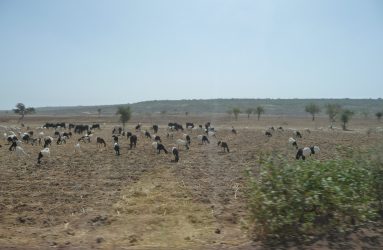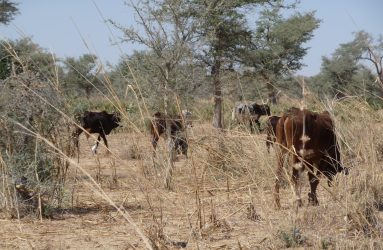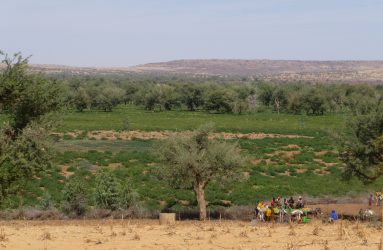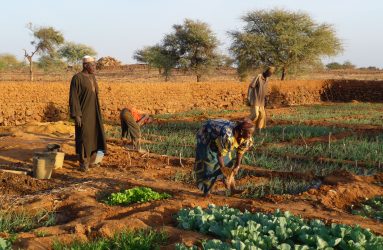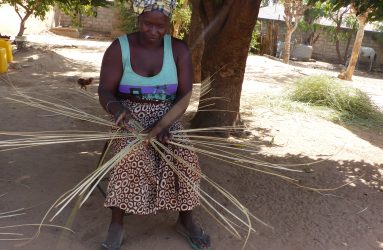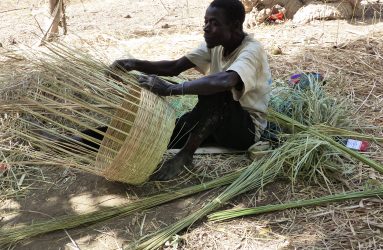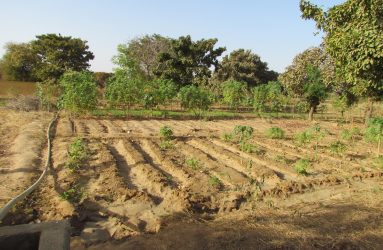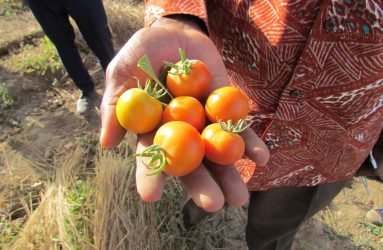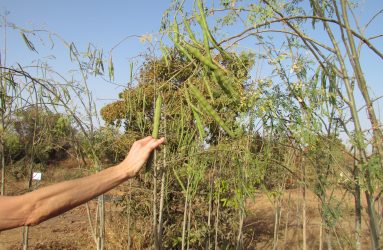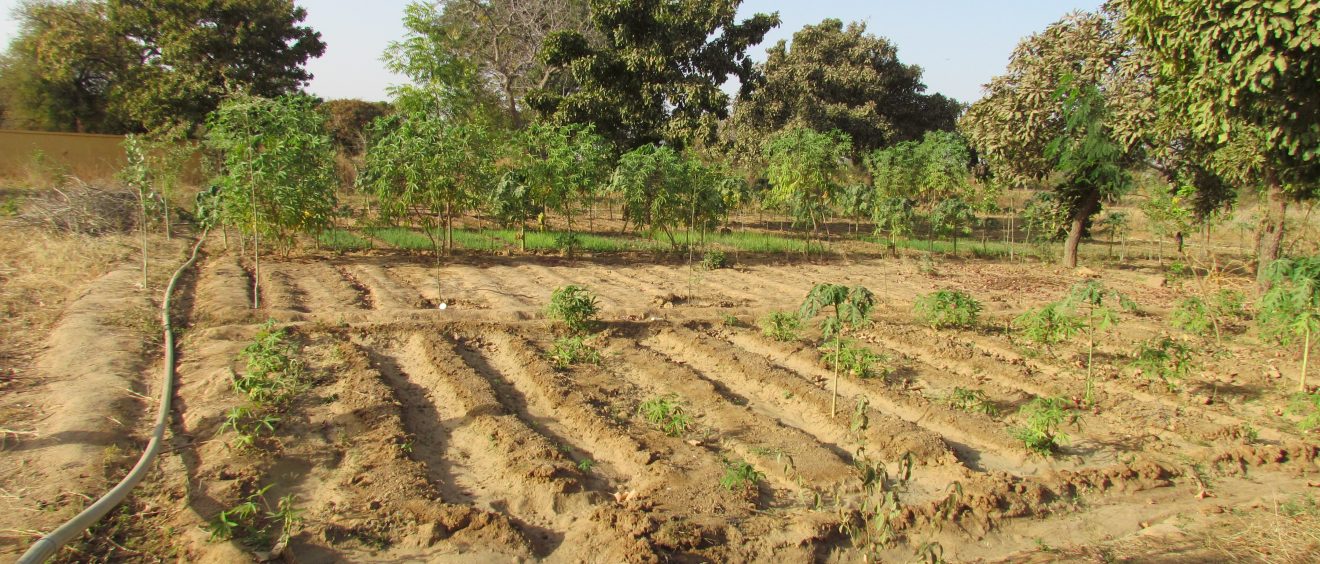
Regreening the Sahel
Supporting farmer managed natural regeneration to gain ground in Africa
The earth is bone-dry and the few shrubs and trees left in the landscape are withering. Land degradation in the Sahel is widespread. Overcultivation and overgrazing are the main culprits, while more erratic rainfall and longer periods of drought caused by climate change exacerbate the process. Meanwhile, conflicts between farmers and pastoralists over access to water, lands for cultivation and grazing grounds get more intense. Many people are left with only one choice: claim their land back from the desert and increase agricultural production – or leave their farms behind, giving free play to the fast advancing desert.
This is the reality in parts of Niger, Senegal and Burkina Faso, three countries in the African Sahel region where Both ENDS started a new project in 2017. Together with our local partners, we want to help turn the tide by introducing a proven method for regreening the landscape. This method is called Farmer Managed Natural Regeneration (FMNR) and its success hinges on two things. First, protect the network of living tree roots that, often invisible to the naked eye, exists beneath the surface of people’s land. Second, make sure the farmer and his fields are the point of departure.
That FMNR can yield impressive results is witnessed in Niger, where Both ENDS and partner organisation CRESA worked with farmers on FMNR for the past fifteen years. Since 2010, we received support from the Turing Foundation. When the project came to an end in 2017, 15.000 ha of dryland had been regreened, as a joint effort by more than 80 communities, benefiting as many as 2.500 households. The benefits of landscapes restored by tree growth are many: trees improve water retention and soil fertility, leading to higher crop yields; they provide fuelwood and timber as well as fodder for livestock. Satellite imagery from Niger undeniably shows that farmers themselves can stop the process of desertification that threatens the livelihoods of millions of them.
LONG-TERM HORIZON
Inspired by these results, DOB Ecology decided to fund a new ten-year programme. We are grateful for this long-term horizon, as this is key to the success of any landscape restoration effort. Damage done to ecosystems over a period of decades cannot be made undone overnight. In fact, the major challenge of this programme is to keep farmers motivated for three years. By that time, the positive effects of FMNR are so evident that 90% continues applying the method without any external incentive needed. Three years, however, is a long time. Hunger often prompts people to opt for short-term benefits, such as selling trees for money or trying their luck with genetically modified ‘wonder’ seeds. The last option only too often exacerbates the degradation of the soil.
Our strategy therefore is to invest in continuous training and guidance to keep the farmers on board. The local NGOs we work with play an indispensable role in this. They are trusted by the communities and support them in applying agro-ecological techniques such as the use of demi-lunes, holes in the shape of a semi-circle, or the shallow lines of stones around a field called cordon pierreux. That is the beauty of FMNR: it is an extremely low-cost method. In fact, the techniques are all traditional African farming methods, which have either been forgotten or replaced. As an extra incentive to keep the farmers motivated, the NGOs use an award system: the one with the ‘greenest’ field receives eighteen sacks of rice, the runner-up gets sixteen.
There is another reason why the long-term horizon is important for this project: our ambition goes beyond the work at the farms. We want to get FMNR adopted in local, national and even international policies and laws and we want to give these local communities access to the substantial global funds (such as the Adaptation Fund and the Green Climate Fund) that are available for climate adaptation measures. Because FMNR perfectly fits the objectives of these funds: it helps farmers, and countries, become more resilient to climate change and it also helps to mitigate climate change itself.

